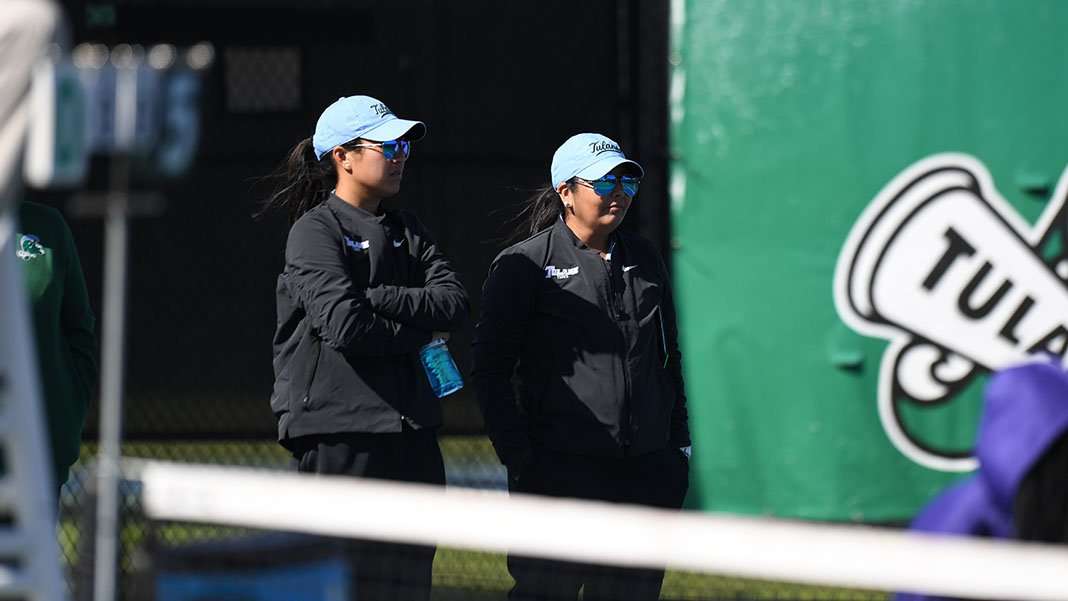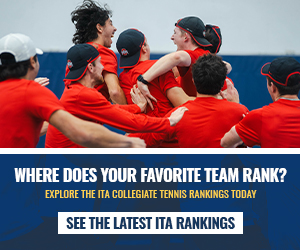Maru Brito was hired as the head coach of the Tulane women’s tennis program in 2017. Since starting, Brito has elevated the program athletically and academically. Aside from her time at the helm of the Green Wave, Brito gives back to the sport by serving on the Division I Operating Committee along with the Education Committee for Latina Tennis Coach.
As a former Division I player herself, Brito incorporates her student-athlete experience into her coaching philosophy. Brito played at Clemson for four seasons under Nancy Harris. During her time with the Tigers, the program reached the NCAA Sweet Sixteen three times and the Final Four twice. Brito came to Clemson as a top-ranked junior from Mexico.
In this Q&A, Brito discusses her journey as an international student-athlete and how that has affected her coaching philosophy.
ITA | How and when were you first introduced to tennis?
My parents play recreationally in a club back home in Mexico City and they introduced me to tennis when I was 6 years old.
ITA | What are some cultural differences that you experienced coming from Mexico and then playing collegiately in the United States?
Mexicans are very family oriented, and it is my first priority, but I felt like my team and my coaches became my second family. Although, the biggest difference was and is still the food! Our Mexican cuisine is one of the best in the world, so I had to adapt in college.
ITA | What are your thoughts on opportunities available for Latinas in college tennis?
I think that you have seen a lot more female coaches getting head coaching positions, but the biggest challenge for a Latina or an international coach is to find a school that can sponsor your working visa.
ITA | How do you think your experience and journey as a Latina coach has differed from your white peers?
I always tell my players that their experience and their journey (no matter where they come from) will be different than each of their teammates. I don’t know if my experience was harder or not, but I have been very blessed for all the people who have been around me who believed in me and gave me an opportunity.
ITA | What tools were made available to you during your college playing career that helped you succeed as a college coach?
I worked every summer since my freshman year in Nancy Harris’s (my college coach) tennis camp for a month. I also studied sports management, so I had some coaching leadership classes and 2 internships.
ITA | What influenced your desire to become a college tennis coach?
Nancy Harris changed my life when I was a student-athlete at Clemson. I had the best experience so I felt that I needed to pay it forward and help young women be the best that they can be.
ITA | What are your goals in college coaching?
Inspire, empower and transform young women’s lives to be the best version of themselves. It is very important for me to teach each student-athlete the importance and value of serving, caring, and loving others — and most importantly, model an attitude of gratitude.
ITA | What resources do you and Latina Tennis Coach offer to assist student-athletes seeking a career as a college coach?
Having a network and support system that Latina Tennis Coach has been working for the last 2 years to assist student-athletes or females that want to get into coaching.
ITA | How can Latinas help and support each other as they navigate the coaching world?
I think we are moving the right way with our new Latina Tennis Coach organization. Clarisse Baca and Nadia Abdala had a vision, a dream, and they are making it happen. They have opened the door to all the Latina coaches and will continue to open the door for many more! We need to continue to recruit passionate and hard-working Latina coaches!
Learn more about Latina Tennis Coach




![Maximizing the ZAMA Health App and Mental Health Advice [ITA Coaches Podcast]](https://wearecollegetennis.com/wp-content/uploads/2024/03/Coaches-podcast-Graphic-ZAMA-Health-218x150.jpg)


![Maximizing the ZAMA Health App and Mental Health Advice [ITA Coaches Podcast]](https://wearecollegetennis.com/wp-content/uploads/2024/03/Coaches-podcast-Graphic-ZAMA-Health-100x70.jpg)





What a very proud feeling. She is the daughter of a very good friend of mine of more than 50 years ago!
Congratulations Maru and Teto!